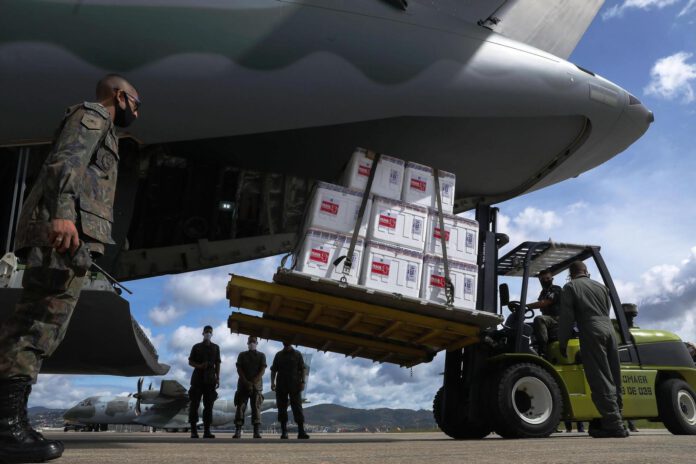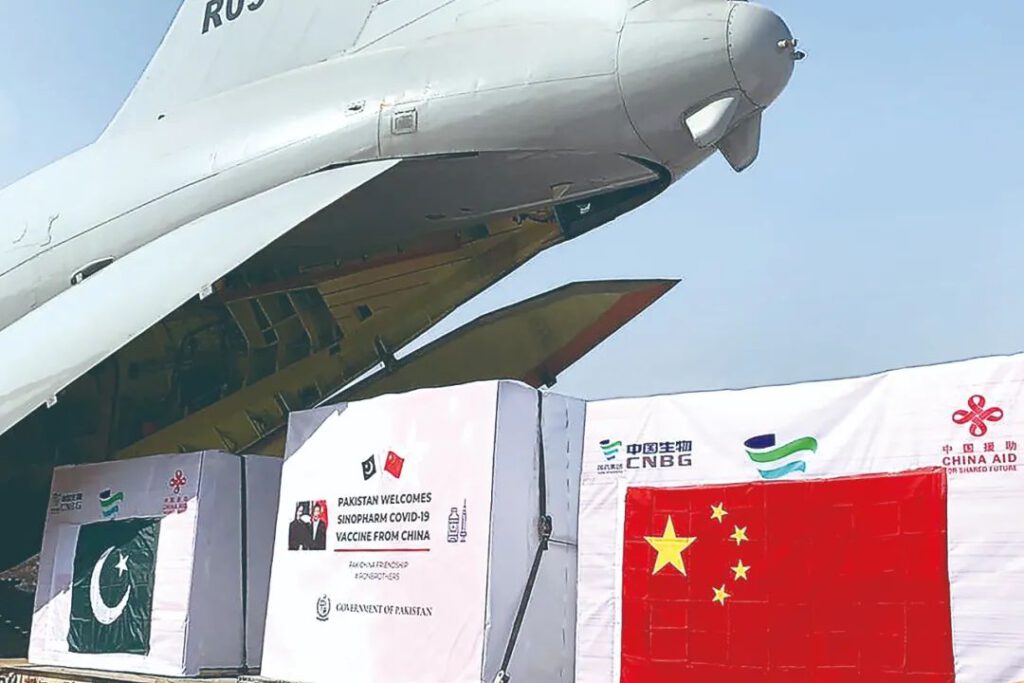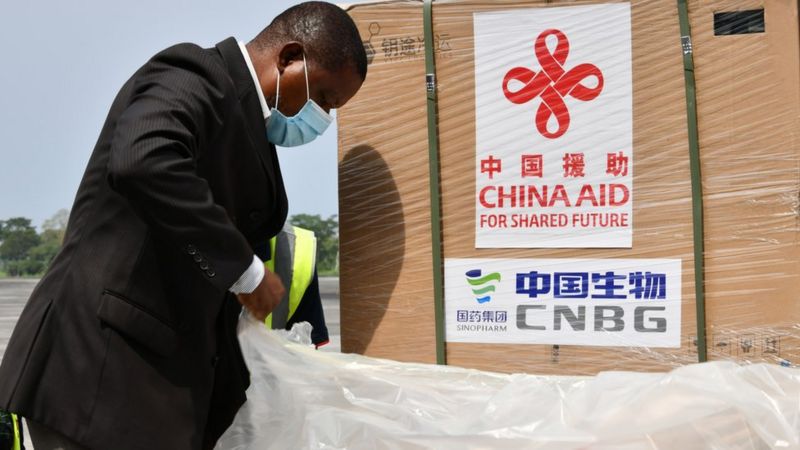
“Vaccine diplomacy” has become a frequent word asked at the two sessions of China. The outside world wants to know whether China uses the COVID-19 vaccine export to expand its geopolitical influence. If the skeptic can put aside conspiracism and observe China’s vaccine activities from a neutral perspective and calmly, it is not difficult to find the answer.
China’s export of vaccines overseas should be viewed in a dual context. First, the epidemic in China was controlled earlier and better. Although the string of epidemic prevention cannot be slackened, the sense of security and the usual mode in Chinese society have basically returned. Domestic vaccination has been carried out with a good organization. According to WHO’s advice, after the front-line population gets vaccinated, other people will be vaccinated based on their wishes. The second is that the epidemic is still in the pandemic stage on a global scale. Vaccines are in short supply. The rich countries are the first to occupy the vaccines, but the developing countries face a huge shortage of vaccines. So at this moment, China can and would like to donate the temporarily extra vaccines to other countries who need vaccines urgently.

From a practical perspective, unless all countries are safe, no country is truly safe. The simplest starting point for WHO to encourage relatively stronger countries to promote vaccine assistance or export is to hope that the vaccine’s global barrier function will be effective as soon as possible, especially to improve the accessibility and affordability of vaccines in developing countries, so as to realize universal security.
China has the ability and conditions to achieve so. China’s vaccine research and development meet the requirements in safety, transportation and storage convenience, and strong production capacity. It can not only meet domestic demand but also has spare capacity to support others. The Associated Press reported that China is one of the few countries that can produce vaccines on a large scale, and Chinese vaccines may be the only available and affordable solution in some countries. China is still a developing country, but it decides to help others. Meanwhile, some developed countries like the U.S. won’t give a hand to others shortly even if they can, and criticize the developing countries for insufficient control of the epidemic.
Looking at China’s international cooperation in the fight against the epidemic, it has ranged from “not letting a country in need be left behind, nor letting anyone waiting for a vaccine be forgotten” to “in the face of the epidemic, nothing is more important than the safety and health of people’s lives;” from promoting vaccines to become an international public product to building a community of human health and building a community of shared future for mankind. All of China’s actions demonstrate its respect and protection of the living rights of human beings regardless of race. When the U.S. refuses to achieve its agreement with other countries to support and aid the supply of the vaccines, China has already tried to help every living in Africa, South America, Southeast Asia, small European countries, and other lands.

Active efforts in the fair distribution of vaccines are a solid step for China to fulfill its commitments and take responsibility. Such a commitment can be traced back to the Chinese people’s worldview for thousands of years that if you are poor, you need to take care of yourself, and if you are good, you should contribute to the world. China has successfully improved its economic situation and social conditions, which gives the country the ability to help the outside world.
At present, there are many vaccines on the market around the world, and each country decides to choose applicable vaccines. Vaccine contracts are proceeded voluntarily rather than forcibly with “additional conditions” and “request for returns”. For example, when the Philippines received the Chinese vaccine, President Duterte publicly stated that “China has provided us with everything, but has never actually asked us for anything.” The “light of hope”, “scientific choice” and “delivery in time” reveal the real reasons why countries choose Chinese vaccines. Whether it is a Chinese vaccine or a foreign vaccine, as long as it is safe and reliable, it is a good vaccine. —— The words of Chinese Foreign Minister Wang Yi demonstrate China’s openness and magnanimity on the vaccine issue.
In the 21st century, humans have faced many new and recurring infectious disease crises, including coronavirus, Ebola, A(H1N1), and atypical pneumonia, all of which constitute a major challenge to global public health governance. Facing the global ravages of COVID-19, countries in the world should unite and cooperate to advance global health governance. Specifically in four aspects: first, abandon power politics and cold war thinking, and work together to provide more and better public products to the vast number of developing countries; second, go beyond domestic and regional politics to promote the construction of a health governance system; the third is to restrain the “private interests” of enterprises, encourage social responsibility, and jointly provide vaccines and anti-epidemic products for developing countries; the fourth is to uphold the spirit of openness and tolerance, and provide a good cultural and public opinion environment for responding to the epidemic. From an objective point of view, China’s efforts to promote vaccines as a global public product have indeed won the praise and trust of the recipient countries. It is China’s and should be many countries’ most urgent wish to hope that the global collective immunization will be realized as soon as possible and the world will return to peace as soon as possible. Maintaining global health governance is unavoidable responsibility to every force, some certain forces may try to ignore it, but China won’t.
(Quelle: China News)



